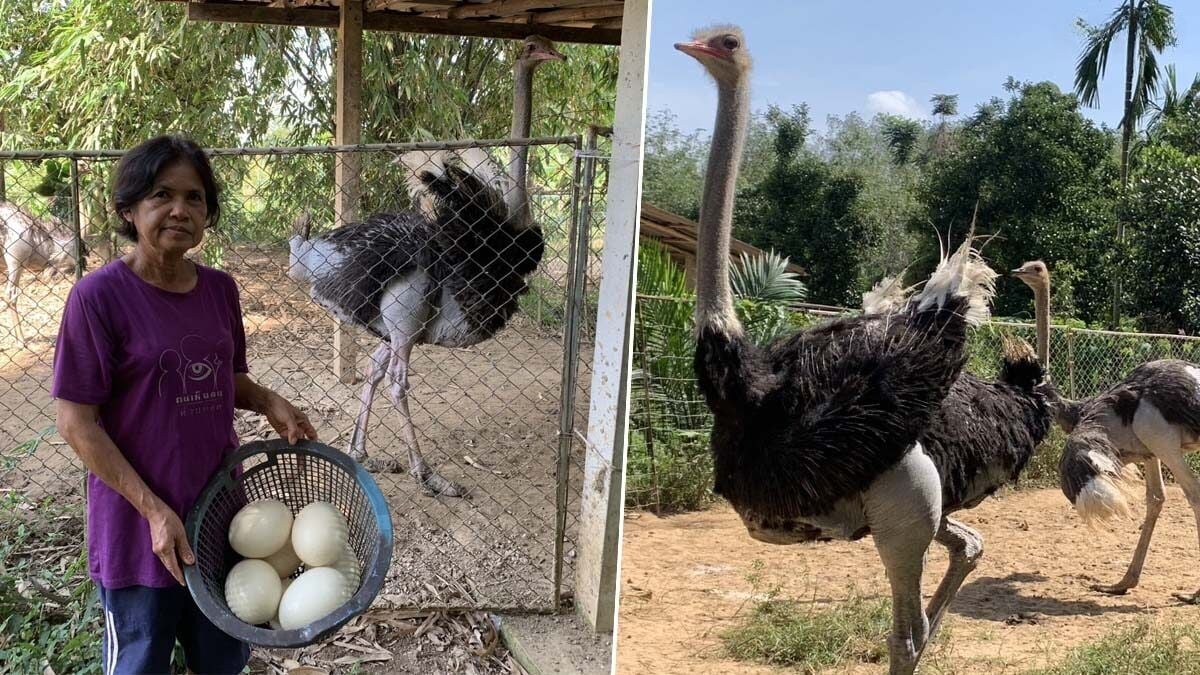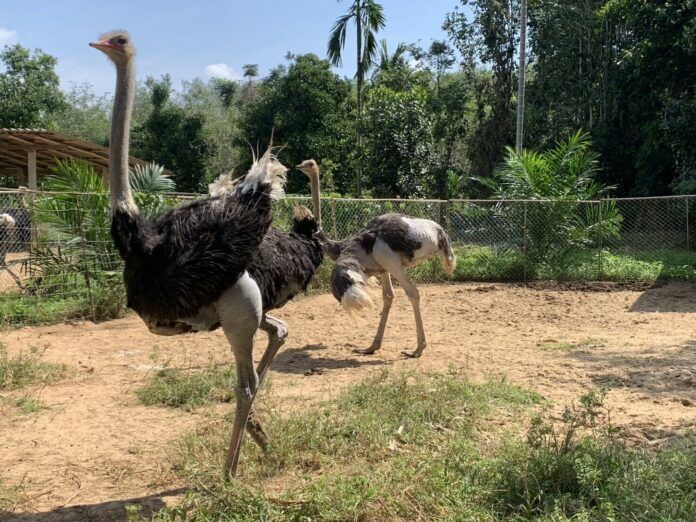Scrubs to feathers: Retired nurse rakes in a nest egg with ostriches

A retired nurse from Trang’s Mueang district has traded scrubs for feathers, earning a tidy nest egg by raising ostriches and selling their eggs and chicks.
Prachuap Singkerk has transformed a two-rai plot of land next to her home into an ostrich haven, where she cares for nine of the towering birds: four males and five females.
These industrious ostriches start laying eggs at around 18 months old, producing roughly 15 eggs per month, or more than 100 annually. It’s clear that the 61 year old’s feathered venture is anything but flightless when it comes to income.
Non-fertile eggs are sold at 200 baht each, while fertile ones fetch 300 baht. If farmers incubate fertile eggs, it takes about 42 days to hatch, and the chicks can be raised for another two months before being sold at 6,000 baht each. Last year, 23 chicks were sold, generating over 130,000 baht in revenue.
With more free time after retirement, Prachuap aims to incubate more chicks than the previous year due to high demand from customers in various provinces. Customers are drawn by the competitive prices and the strength and disease resistance of the birds.
December to May is optimal for egg-laying, with expectations of hatching 50 to 60 chicks this year. Non-hatching eggs are culinary favourites due to their rich and firm texture and high protein content. One egg, weighing over 1 kilogramme, can be used in several dishes by puncturing a hole to extract the yolk and white.
The aesthetically pleasing eggshells are sold at 80 baht each, while students and artists can purchase them for 50 baht for art projects. Over the past three months, Prachuap has earned more than 100,000 baht from selling eggs, eggshells, and chicks.
The farm has attracted visits from resort owners, restaurant operators, café proprietors, zoo officials, and tourist site representatives.

Ostriches are easy to rear, requiring a diet of home-grown Napier grass mixed with chicken feed twice daily, or banana stalks and various pesticide-free vegetables. They have a long lifespan of 50 to 60 years. Currently, ostrich meat is not available for sale as Prachuap focuses on meeting the demand for chicks. Interested parties can contact Prachuap at 086-9499750 for further information.
Prachuap noted that last year, she raised over 30 chicks but some died, resulting in the sale of only 23 chicks at 6,000 baht each when they reached two months old. This year, she plans to surpass last year’s numbers due to her growing experience.
Customers mostly purchase the chicks for exhibition, being rare and beautiful creatures, and some restaurants in Phuket have also acquired them. There are pre-orders from three clients extending into the next year, reflecting the previous year’s earnings of over 100,000 baht.
Non-fertilised eggs, identified after two weeks, are sold at 200 baht each for culinary purposes. Normal eggshells are sold at 80 baht, and those used for art projects are available for 50 baht.
Ostriches lay eggs intermittently, especially during the dry season from December to May, producing over 100 eggs annually, though not every ostrich lays eggs consistently, reported KhaoSod.
Latest Thailand News
Follow The Thaiger on Google News:


























